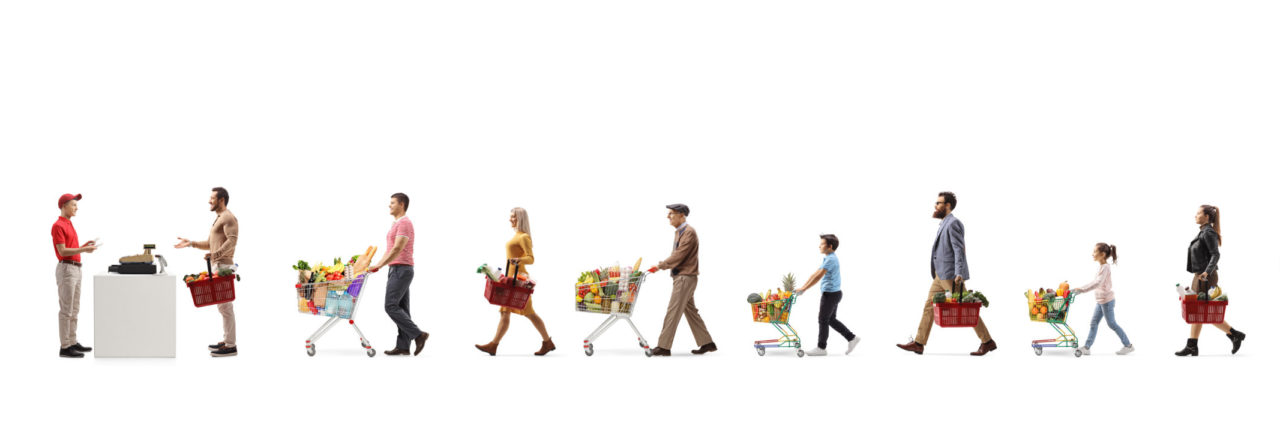
#66: Service is dependable only when it follows a system.
A retail system is a method or routine we adhere to in operating our stores: reconciling the cash, reordering merchandise, counting change, taking messages, scheduling deliveries, taking inventory, approving credit, transferring calls …. Whether by trial and error or forethought, we find and settle on systems that work for us.
When we stay within our systems, we’re reasonably reliable and efficient. But when someone doesn’t follow the system or we take on a task for which we don’t have a system, we make mistakes, miss opportunities, waste resources and effort, and let our customers down.

#68: A system unwritten is a system adrift.
In the game of Chinese Whispers, a story is whispered from person to person in a circle. The last person announces what he heard—almost always different enough from the original to provide amusement and amazement.
We often don’t notice as our processes are gradually reinterpreted. Only when expensive or embarrassing mistakes come to light do we recall that we once had a system that anticipated and avoided precisely the problem that has arisen. No one remembers changing the system—it just slowly evolved.
Unless retail systems are written out, only their drifting is dependable.
If the documents are maintained as operating manuals, they can be used for both training and reference. When changes or improvements are intentionally made, the manual is easily updated.

#69: What’s everyone’s responsibility is no one’s responsibility.
Many tasks of operating a store could be performed by almost anyone on the staff: putting out stock, taking inventory, maintaining signage, arranging merchandise …. Sometimes they’re considered general assignments—everyone should use free time between customers to do them.
But jobs that are everyone’s responsibility seldom are done well or regularly, and details occasionally ignored soon evolve into lower standards.
Tasks are performed more reliably when they’re specifically assigned and become part of someone’s daily routine. Yes, everyone should stay busy and there is always something to be done in retail, but it’s done better and more reliably when responsibilities are specific.

#72: A business can grow only when its systems can be run by average employees.
Most stores begin with an entrepreneur who has enough retail skills to get the store started. Eventually he hires some “help,” while continuing to do most of the critical functions himself. Many stores remain in this stage, occasionally by choice but usually because the entrepreneur can’t delegate his responsibilities.
If he wants to grow the business further, he has to break down complex operations into simple processes that can be reliably executed by employees who, although capable, are unlikely to have the same dedication or longevity.
When retail systems are workable and employees are trained, the business runs smoothly, allowing the entrepreneur time to innovate and the store to grow.

#73: Where mistakes are frequent, processes, not people, are the problem.
A system that seems simple to its designer is often a puzzle to those who must implement it, especially in an environment busy with diverse activities. Those on the frontline seldom have the same experience or understanding of the big picture, and the process is only one of many they have to learn and remember.
More training, better quality people, and increased retention are good prescriptions for almost every problem, but they’re expensive and persistent challenges in themselves.
A more user-friendly retail system is almost always the most efficient remedy for recurring mistakes.

#76: There’s always a better way.
One of the most creative and gratifying aspects of running a store is improving its processes, especially when the improvement makes the store more efficient, reliable, and profitable.
But such improvement is also a competitive necessity. A retailer who doesn’t continually refine his processes, improve his offerings, employ new technologies, and increase his efficiency is quickly passed by competitors. Before long he wonders why what worked for him for so long is no longer profitable.

#78: What gets inspected gets done.
Retailing is managing thousands of details. It’s virtually impossible to keep up with all of them unless they’re put on a list and subjected to regular inspections.
Employees buy into the retail systems when they participate in making the list and setting the criteria. They know first-hand what’s important in the operation of their areas.
Living up to the inspection criteria initially takes time and effort, but soon the standards become accepted and maintenance is routine and easy.
Previous: Customers
Next: Design & Display
Retail Truths is available in print and Kindle at Amazon.com
